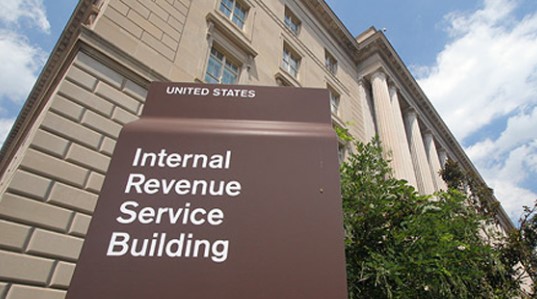 Parler
Parler Gab
Gab
- The Internal Revenue Service (IRS) has a long history of facing accusations of waste, inefficiency and corruption, with notable incidents including the targeting of conservative groups for additional scrutiny in 2013.
- In 2025, the IRS is under scrutiny by Elon Musk’s DOGE, with his top aide, Gavin Kliger, initiating a comprehensive audit to address cost-cutting, waste and fraud within the agency.
- The audit is part of President Trump's directive to overhaul federal spending and faces significant political opposition from Democrats concerned about potential overreach and the impact on taxpayer services.
- Despite recent expansion with an $80 billion funding increase from the Biden administration, the IRS is now facing new budget cuts and operational changes, raising concerns about service delivery, particularly during tax season.
- The audit marks a significant turning point for the IRS, potentially reshaping the agency’s operations and setting a precedent for how other federal agencies will be managed under the Trump administration and Musk’s DOGE. The outcome could significantly impact taxpayer services and enforcement policies.
Musk’s audit: A pretext for deep-seated budget cuts?
On a chilly Thursday in Washington, D.C., Gavin Kliger, one of Elon Musk’s top staffers, entered the IRS headquarters to begin an audit that has sent shockwaves through the federal government. According to sources familiar with the matter, Kliger's visit is the first step in a broader effort to scrutinize the IRS's operations, part of President Donald Trump's directive to Musk to cut costs, waste and fraud across federal agencies. President Trump, when asked about the Reuters report, was forthright: "DOGE is doing a great job. No agency will escape Musk's gaze." This statement underscores the administration’s commitment to a radical overhaul of federal spending, with the IRS being a prime target. The timing of this audit is particularly sensitive, as the IRS is currently in the midst of tax season, a period of heightened demand and stress on its resources. Despite the agency's recent expansion to about 100,000 workers, thanks to an $80 billion infusion from the Biden administration, the IRS is facing a new wave of budget cuts and operational changes. Sen. Ron Wyden (D-OR), the top Democrat on the Senate Finance Committee, expressed concerns on X (formerly Twitter), warning about potential refund delays and the data access that Musk’s aides might have. However, it is emphasized that Kliger has not made any operational changes or initiated layoffs, and that federal law strictly limits access to taxpayer information.The political chess game: Republicans vs. Democrats
The political implications of Musk's audit are significant. Republicans, who have long criticized the IRS, see this as an opportunity to reverse the agency's expansion and shift its focus back to core functions. Jason Smith (R-MO), the chairman of the House Ways and Means Committee, wrote to acting IRS Commissioner Douglas O’Donnell, listing a series of concerns about the agency’s operations, emphasizing that "business as usual at the IRS is unacceptable." On the other hand, Democrats are wary of the potential for overreach. The Biden-era expansion of the IRS was aimed at improving taxpayer service, updating technology and enhancing enforcement, particularly against high-income households and corporations. The administration’s efforts included adding thousands of new staff to answer phones and process returns, as well as accelerating technology upgrades. Treasury Secretary Scott Bessent, in a Fox News interview, outlined the administration’s goals for the IRS: "collections, privacy and customer service," adding that they plan to undertake a "big IT upgrade." However, the Republican-controlled Congress has already clawed back some of the funding, and Musk’s recent actions, such as the "deletion" of 18F, a government technology agency, have added to the uncertainty.A turning point for the IRS?
The arrival of Gavin Kliger at the IRS headquarters marks a significant turning point in the agency's history. While the intent of the audit is to cut waste and improve efficiency, the broader political context suggests that this move is part of a larger strategy to reshape the federal government in line with conservative principles. As the audit progresses, the IRS will need to navigate a delicate balance between maintaining its essential services and complying with the new directives. For taxpayers, the coming months may bring significant changes, from the availability of services to the enforcement of tax laws. The outcome of this audit will not only reflect on the IRS but will also set a precedent for how the Trump administration and Musk’s DOGE will handle other federal agencies. The IRS has faced numerous challenges in the past, but the current audit may be the most consequential yet. The question remains: will this scrutiny lead to a more efficient and accountable IRS, or will it pave the way for further partisan conflict and bureaucratic turmoil? Only time will tell. Sources include: TheNationalPulse.com USNews.com WSJ.comTrump administration secures historic U.S.-Mexico military border patrol agreement
By Cassie B. // Share
A BEACON OF PEACE: Trump administration signals sanctions relief for Russia in Ukraine talks
By Willow Tohi // Share
JD Vance has signed the death warrant of the status quo
By News Editors // Share
IRS fires 6,000 employees as Trump Administration targets government waste
By Cassie B. // Share
Governments continue to obscure COVID-19 vaccine data amid rising concerns over excess deaths
By patricklewis // Share
Tech giant Microsoft backs EXTINCTION with its support of carbon capture programs
By ramontomeydw // Share
Germany to resume arms exports to Israel despite repeated ceasefire violations
By isabelle // Share










